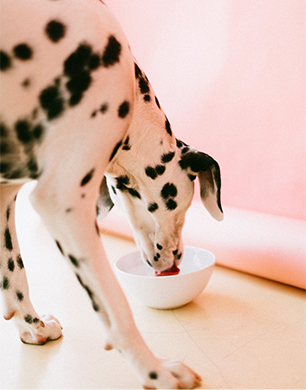
Photo Credit: Daria Shevtsova via www.pexels.com
Just like us, dogs require a proper diet to maintain their mental and physical health. Provide the wrong food and they’ll become obese, sick, and lethargic. They’ll lose hair, experience skin problems, and ultimately live a shorter life. What you choose to feed your dog is an important decision.
It can mean the difference between them living a long, prosperous life and going through unnecessary hardships. Fortunately, it isn’t difficult to ensure that your beloved canine is lean, healthy, and bursting with energy. Even if you’re satisfied with what you’re currently feeding your dog, some small changes or improvements can go a long way.
With this in mind, consider the following 6 tips to improve your dog’s diet.
Ignore the Marketing
When it comes to dog food, relying on what the advertisements tell you is not ideal. This is especially true for the nutritional information. For example, it’s almost always impossible to identify what the protein in the food is actually made from. Most forms of meat are in large part water. For example, beef and chicken are over 60% water by weight.
Remember, the marketing department isn’t responsible for making the food – their job is to convince you to buy it. If whoever is recommending you a certain food can’t explain what the ingredients are, where they’re sourced, as well as why they’re healthy for your dog and how it will be better to check out the label and perform your own research.
Buy With Caution
Food, especially when it isn’t being canned, refrigerated, or otherwise preserved, naturally doesn’t have a long shelf life. But most processed dog foods can stick around for 6, 12 or even 24 months. This is mainly due to the industrial manufacturing that goes into their production, which can rid the food of its enzymes while adding harmful ingredients.
You can think of them as ‘dead’ foods, and they rely on synthetic supplementation to appear nutritious. Of course, kibbles and the like are for many people the only option and are necessary in situations such as animal shelters and charities due to costs. That said, it’s best to approach them with caution, as they don’t make for a complete diet.
Introduce Raw Foods
Knowing the above, it makes sense to consider alternatives to your everyday kibble. An increasingly popular solution is raw dog food, which is made out of fresh, real, and unprocessed ingredients based on what dogs would eat in the natural world. The benefits of introducing raw food into your dog’s diet range from better skin to a healthier coat and more.
Pancreatitis in Dogs and other common conditions including cancer and diabetes – which are often attributed to commercial foods – can also be prevented by switching to raw dog food. Not all companies that make it are the same, so it’s important to look for a supplier that can provide an affordable and quality product.
You can more information about pancreatitis in dogs on bellaandduke.com, which is a leading distributor of natural raw dog food. They can create custom diets based on the individual characteristics of your dog and send the food to your door without a delivery cost. By incorporating raw food into your dog’s diet, you can ensure that they stay clear from a range of health problems.
Opt for Antioxidants
Inflammation causes a myriad of health issues both in dogs and humans. This includes arthritis, steatitis, and pancreatitis. Feeding your pooch more natural foods with antioxidant properties can help to stave off inflammation.
Use Apple Cider Vinegar
Organic produce can be expensive. Luckily, there are some ways to make what you can get a little safer. For example, you can use apple cider vinegar to scrub off the pesticides from the non-organic fruits and vegetables that you feed your dog. Start by placing the product into a mixture of one part apple cider vinegar and four parts water.
Then, scrub it with a soft brush before rinsing. Apple cider vinegar is touted to have several other benefits as well. This includes relieving itchy skin, as well as being an effective ear cleaner. You can also use it to repel ticks and fleas. Simply mix up a half-and-half solution of apple cider vinegar and water before spraying it onto your dog’s coat.
Avoid Gluten
When buying dry dog food, be sure to look out for gluten meal in the ingredients list. It’s a corn-based mixture that’s meant to prevent the unstable fats in kibbles from becoming stale. However, it can increase the retention of waste products in your dog’s digestive system, which harms their organs and makes their waste smell worse.
As a bonus tip, remember not to overfeed your dog. Obesity is a serious problem among today’s dogs and aside from providing a proper diet, limiting their intake to only what they need can go a long way in maintaining their overall health.

